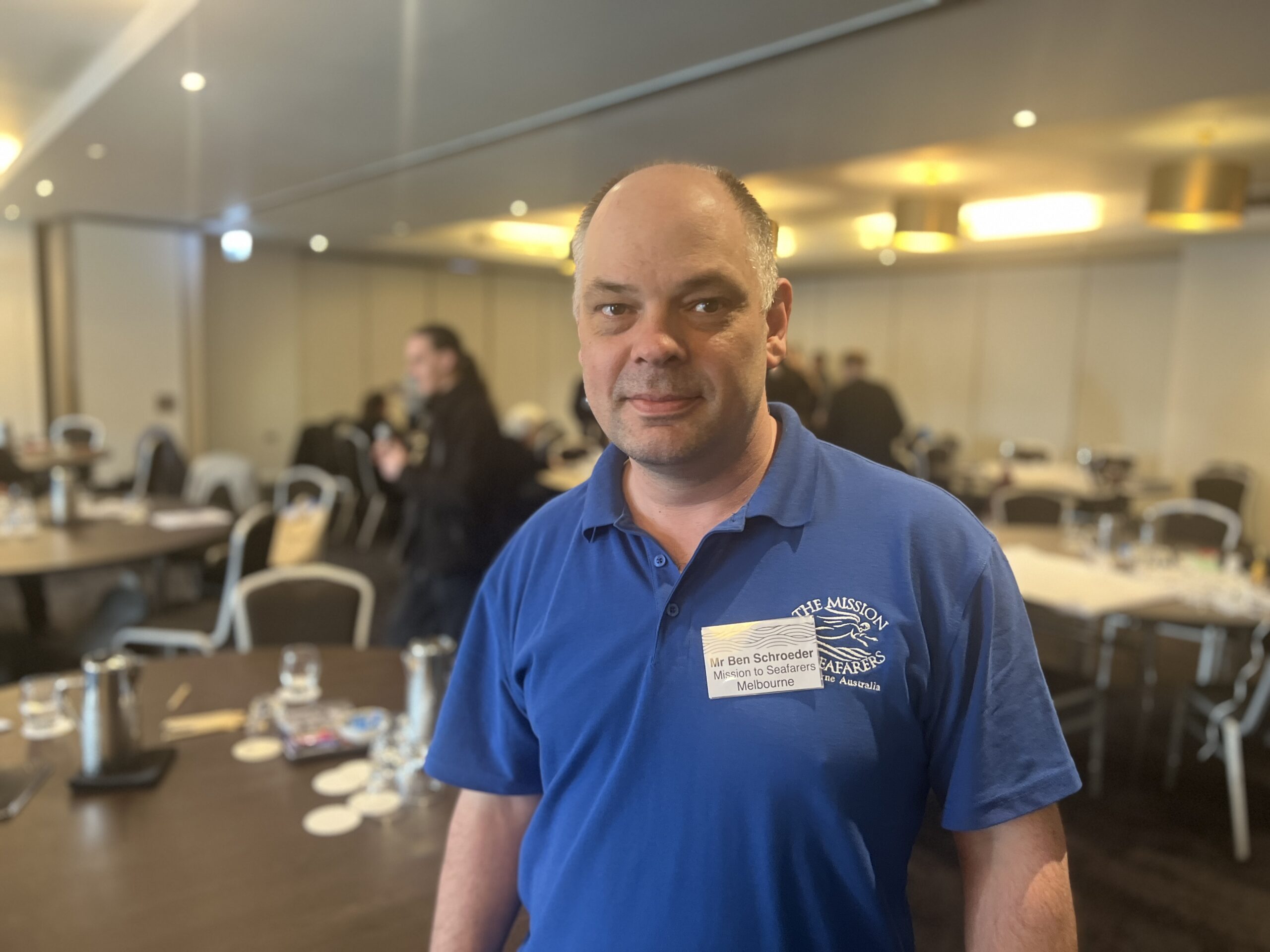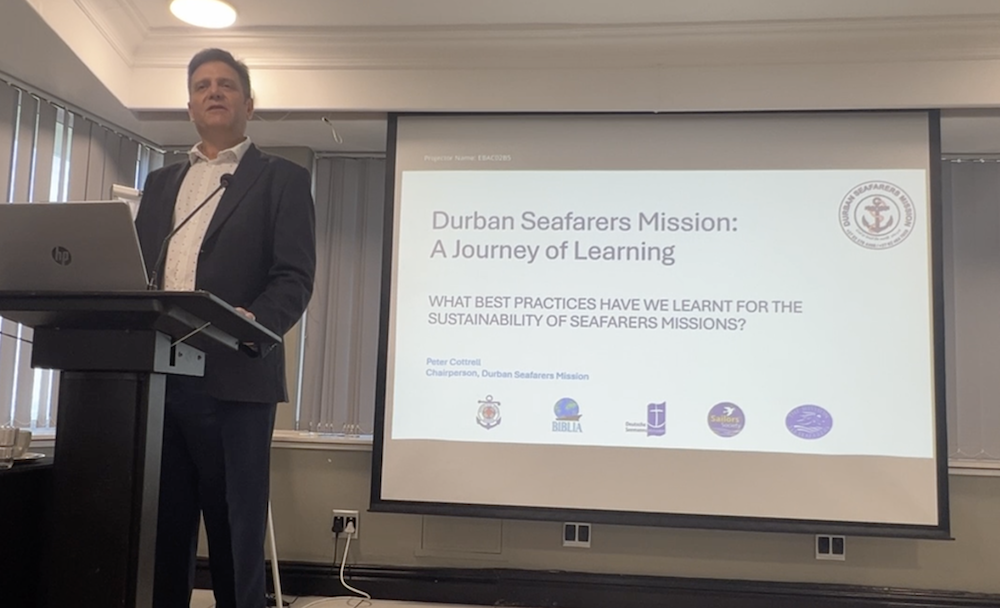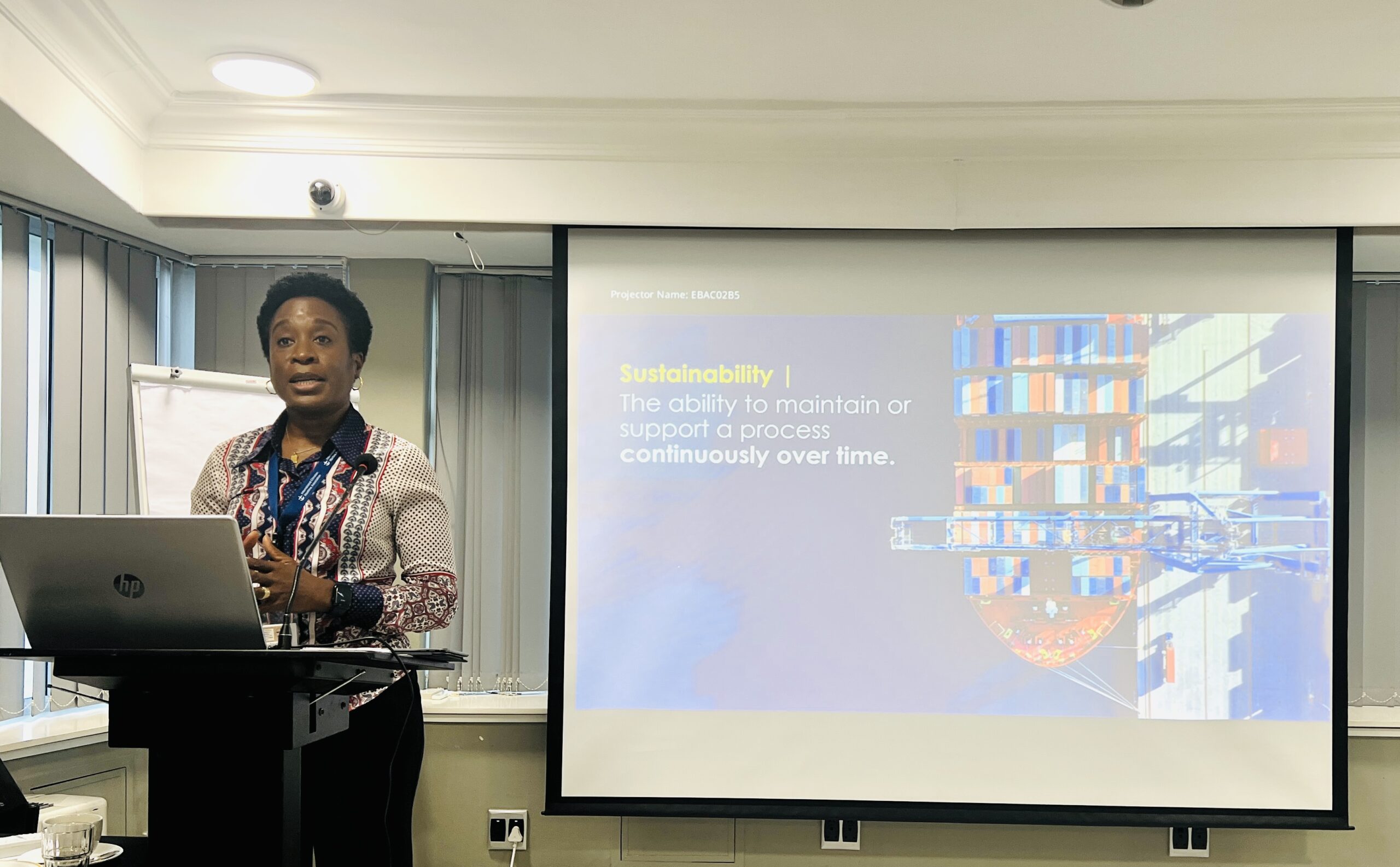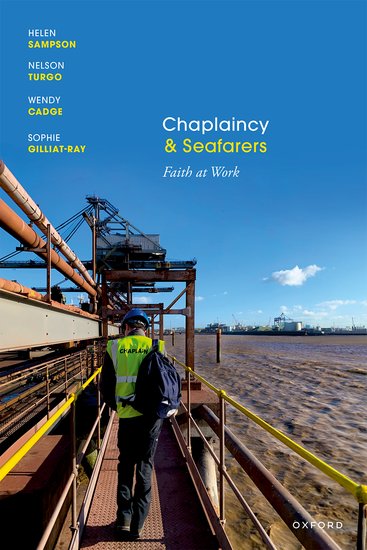Fremantle, Australia, July 18, 2024 – At the Mission to Seafarers Australia Seafarers’ Welfare Conference, Ben Schroeder, Operations Manager at The Mission to Seafarers Victoria in Melbourne, delivered a compelling address on the critical topic of recruiting and retaining volunteers. Schroeder’s insights shed light on the challenges and strategies involved in managing a robust volunteer program, particularly in the wake of the COVID-19 pandemic.
Volunteers are the lifeblood of the Mission to Seafarers, and the need to focus on their recruitment and retention has never been more pressing. The pandemic resulted in a significant loss of volunteers, necessitating a concerted effort to rebuild this vital workforce. Schroeder emphasized the importance of volunteers in the mission’s operations, highlighting their invaluable contributions and the inspiration they bring to the organization.
Schroeder shared his personal journey, which began in the Anglican church, with both parents serving as priests in different parishes. At 18, he distanced himself from the church and worked in the service industry, managing restaurants for many years. Burned out by the age of 40, he took a year off, during which a friend’s request to help at the Mission to Seafarers Victoria led him to apply for the role of operations manager. This new role brought a sense of fulfillment that had been missing in his previous jobs. Schroeder attributed this to the remarkable dedication of the volunteers, who work tirelessly without expecting anything in return.
One of the main challenges Schroeder highlighted was the loss of volunteers during the pandemic and the subsequent need to rebuild the volunteer base. He noted that word of mouth remains the most effective recruitment method, but a few key websites have also been instrumental in driving new volunteers to the mission. For example, Volunteer.com.au has been particularly valuable for reaching potential volunteers in the Docklands area.
Improving the volunteer experience is crucial for retention. Schroeder explained that starting with a clear position description, ensuring compliance with occupational health and safety regulations, and creating a comfortable and positive environment have been key strategies. Despite the initial dropout rate of about 50% after the first shift, those who stay tend to remain committed for the long term. Gathering feedback from departing volunteers helps the mission refine its processes and better understand the reasons for leaving.
As the volunteer coordinator, Schroeder manages up to 60 volunteers, which he judges is about his maximum capacity. His suggestion is that potentially another chaplain could help work with volunteers to minister to them. This “hybrid” role allows the chaplain to focus on seafarers while Schroeder handles volunteer management. To enhance his effectiveness, Schroeder is currently completing a certificate in volunteer management. This professional development, subsidized in part by Volunteering Victoria, includes coursework on inductions, occupational health and safety, and project management.
Schroeder stressed that recruiting volunteers is not about finding a magic bullet; it starts with one person and ensuring they have a positive experience. It’s important not to undersell the work. Potential volunteers want to be part of successful and growing organizations, not just “a driver” or someone who “just” fills a role. They need to see the vision and feel that they are contributing to something meaningful.
Every mission has its unique environment and challenges. Schroeder emphasized the importance of holding on to the aspiration of what the mission aims to achieve. Clear communication about the needs and roles of volunteers makes their induction smoother and more effective. Volunteers create the space for chaplains and other staff to operate effectively.
For example, if a volunteer role is framed merely as a shopkeeper, it might seem unappealing. However, incorporating training and other responsibilities can make the role much more interesting and fulfilling.
Addressing the inclusion of non-Christian volunteers is another important aspect. “My advice,” said Schroeder, “is whichever policy you have you should stick to it. I my mission I say, ‘We walk in a Christian path. We have a chaplain and we operate a Christian mission.’ If volunteers who are not Christian can work with that, then they are welcome.”
The Mission to Seafarers has signed the national strategy for volunteering, and the Australian Council has a training budget, which might offer further funding opportunities for those wishing to learn more.





